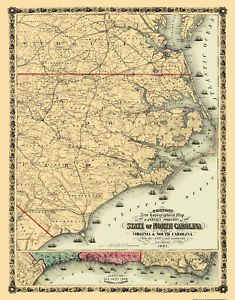 Since the Union capture of Vicksburg, Mississippi this past summer, Gen. William Tecumseh Sherman has focused his attention eastward to Meridian, another strategic town in Mississippi. Slowly but surely and through a veil of feints and unusual maneuvers, Sherman has confused Confederate defenses in the ensuing months.
Since the Union capture of Vicksburg, Mississippi this past summer, Gen. William Tecumseh Sherman has focused his attention eastward to Meridian, another strategic town in Mississippi. Slowly but surely and through a veil of feints and unusual maneuvers, Sherman has confused Confederate defenses in the ensuing months.
Today the Union general and his army finally reach Meridian, which is unguarded due to Confederate Lieutenant General Leonidas Polk’s belief that Sherman was targeting Mobile, Alabama. Within days of occupying the city, Sherman orders his soldiers to destroy the city, particularly the arsenal, storehouses, hospitals, hotels, businesses and railroads. One week later when the federals march out of the city en route to a return to Vicksburg, Meridian is an expanse of smoldering ruins.
Nonetheless, within a month determined Confederate forces repair the crucial railroad lines and resume rail operations, effectively canceling six months of Union efforts to reach and then destroy Meridian’s transportation infrastructure.
Meanwhile, readers of this week’s North Carolina Baptist Biblical Recorder read of a recent “outrage” committed by “a Massachusetts negro regiment” upon citizens of the state. The alleged incident took place during a December Union army campaign in eastern North Carolina designed to encourage slaves to escape and join the Union Army. The greatest fear of many white Southerners is that of escaped slaves armed and fighting for the North.
The Richmond Examiner has learned from a most reliable source, that a detachment from a Massachusetts negro regiment, under the colonel commanding, left Norfolk a few weeks since for Currituck county, North Carolina, to attack and capture if possible, some of our guerrillas of Lieutenant White’s command. Failing in this, they visited a second time the house of Lieutenant White, and, after abusing his family, took his daughter, an accomplished young lady of seventeen years. After having her hands tied in front of her and the rope thrown over her shoulders, she was driven by a big negro, with curses and abuse, in front of the command, towards Norfolk. When within five miles of Norfolk they met a regiment of the New York white infantry, who with its colonel at the head, knocked over the negro driver and rescued Miss White from the negro guard, and sent her to Norfolk in a carriage.
Whether this particular incident is true or not, stories of black soldiers capturing and/or harming white citizens — especially women — of the Confederacy serve the purpose of reinforcing a belief in the inherent immorality of blacks while further stoking hostilities of Southern whites toward the North.
Sources: “History of Meridian, Mississippi” (link); “Yankee Outrage,” Biblical Recorder, February 13, 1864 (link)


